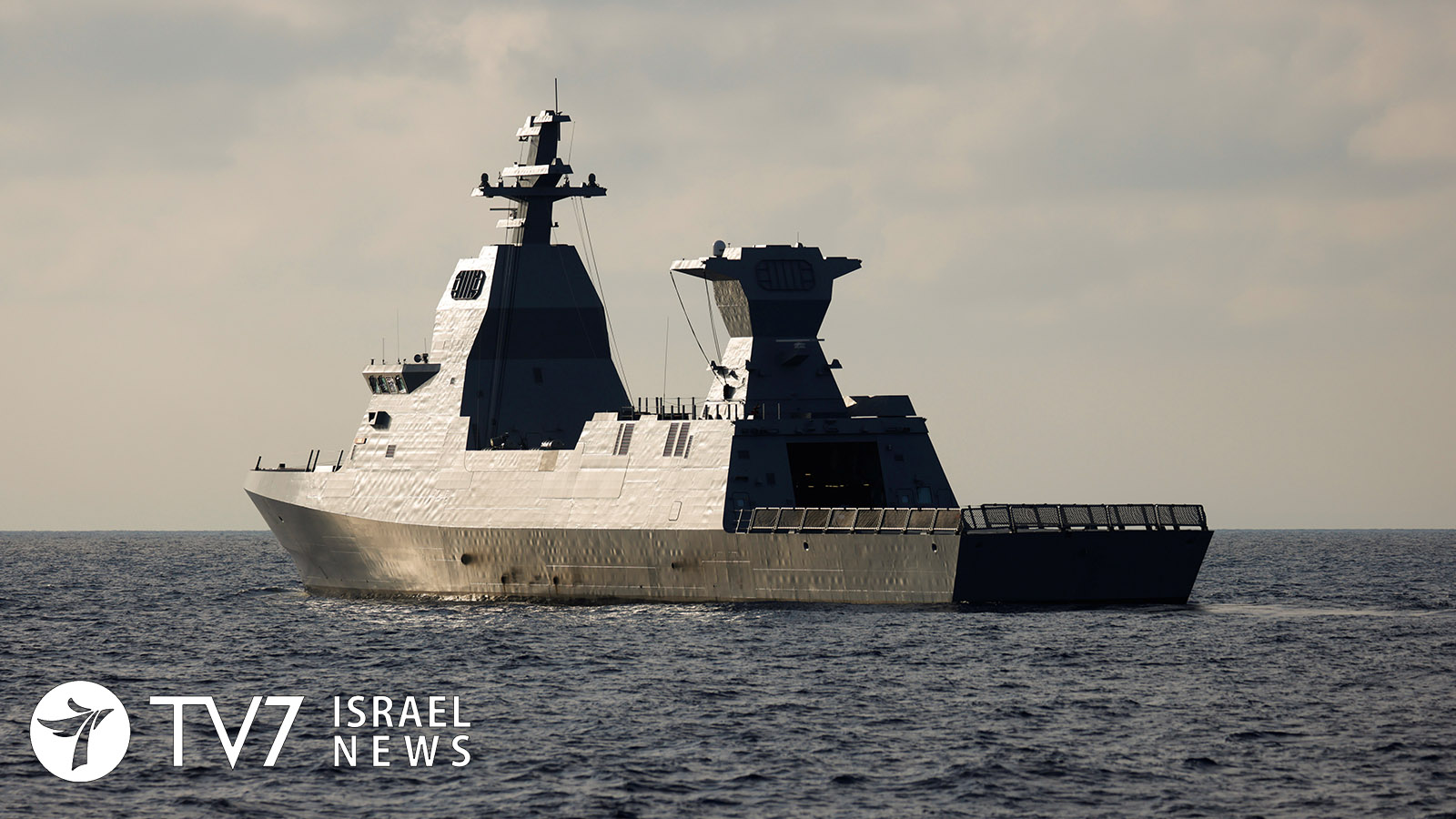The Israeli Navy welcomed the arrival of the 2nd of 4 German-built warships.
The Sa’ar 6 class corvette, inaugurated as the INS “Oz” (meaning “courage” in Hebrew docked at the Israeli naval port of Haifa after a 2-week voyage from Germany. It arrived as part of a ceremonial flotilla accompanied by 2 submarines.
Over the next 2 months, the highly-advanced vessel will be further equipped with numerous combat systems, the majority of which are Israeli-made.
According to a 2015 agreement, the corvettes will be constructed in a joint project by German Naval Yards Holdings and ThyssenKrupp Marine Systems. The first, the “INS Magen” (Hebrew for “Shield”) was delivered last December and another two will follow later this year, bringing to 15 the number of missile-carrying vessels deployed by an Israeli Navy which, while small, carries out missions as far away as the Red Sea and the Gulf.
Israeli Navy Commander Rear Admiral Eliyahu Sharvit said that all 4 of the vessels will ensure the nation’s maritime superiority.
“We face a distinctive and complex time-period amid security challenges and in light of the existing vital assets at sea,” said Admiral Sharvit during a formal ceremony in Haifa marking the latest addition to the Israeli fleet. The country’s offshore gas reservoirs in the Mediterranean Sea “constitute an important economic and national asset, like no other,” he underscored, explaining that, “In a globalized world, in which the economy relies solely and exclusively on international trade, shipping routes and maritime ports constitute a lifeline that has no alternative for Israel’s economy.”
Israeli Defense Minister Benny Gantz echoed those statements in his own address to military forces attending the event, stressing how critical it is to successfully protect the Israeli coastline and Exclusive Economic Zone (EEZ). “Dear soldiers, your actions is the basis of our ability to maintain in Israel, and to Israel, an economy and an advanced energy sector,” stressing that, “Your watch and ‘hermetic’ defense of Israel’s economy – during times of emergency and routine – is a strategic achievement that should not be taken for granted.”
Minister Gantz also praised the Israeli Navy for its role during the Operation Guardian of the Walls campaign in May against the Islamist organizations in the Gaza Strip.
“Naval troops thwarted attempts to deploy unmanned maritime vessels toward the State of Israel and diverted the battle from the sea to land, into enemy territory. You who stand here fought in cooperation with all of the military branches as part of an action model derived from the concept of multi-dimensional combat,” he said, going on to hail “this as just a sample of innovation and operational capabilities which the navy is developing. An example of power that we are willing to activate on multiple fronts, including on the Lebanese front and far beyond, and against attempts to arm our enemies and to place weapons that breach regional stability.”
Israel is relentlessly protective of its offshore natural gas fields close to Lebanon, an old foe with which it has held so far fruitless United States-mediated maritime border talks. Lebanon’s Iranian-backed Hezbollah terror group also presents a potential threat to Israel’s gas rigs.
